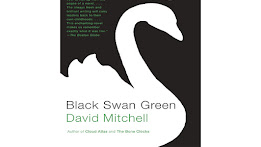The Role of Secrets in Disco
Throughout the chapter Disco Jason and other people in his life start to reveal a lot of secrets that have been building and weighing on him over the course of the book. He starts by revealing how Neal Brose has been extorting him for "popularity lessons", then later he finally tells Michael about the broken watch, and Michael tells Jason about the divorce (Mitchell 260; 277-278). There's also the lesson from Miss Lippetts about secrets, which may have been part of the reason he finally talked about the watch, and it also one of the few times Jason has said anything in class. It seems like that made Jason start to reconsider the secrets he had been keeping after seeing it in a classroom setting, though by that point he had already started to throw out a lot of already arbitrary rules. The one secret that he doesn't tell anyone in this chapter is his connection to what happened to Ross Wilcox, which may have been more so because he didn't think he needed to do that as much.
We also see more evidence that Jason is terrible at anticipating the consequences of his actions, and especially the secrets he reveals. When he smashed Neal's calculator and started the chain of events that led to him talking about the extortion racket, he intentionally ignored whatever would happen next calling it "rule one" (Mitchell 258). It's not exactly clear if Jason thought Neal would get expelled due to that, but it is clear that he was unable to predict Neal's reaction and how it would affect people other than Neal, which we see at the dance (Mitchell 272). Jason also fails to predict Michaels reaction to learning about the watch, which is a secret Jason has been worrying about for the entire year by now, and which Michael ultimately doesn't even care about (Mitchell 278). That might have also been because Michael has something more important to worry about, but it still shows how Jason isn't very good at predicting the consequences of revealing his secrets.
Jason's behavior in Disco is also pretty different from the rest of the book so far, and the secrets that he starts to talk about are also evidence of a change in his worldview. He seems have a new view on all the rules that govern his life and how completely arbitrary a lot of them are, and he's more or less stopped "giving a toss". He throws out the rule of not "grassing" on others as well as the rules of his school, and he seems to have stopped fixating so much on what people think of him. I think that after his experiences in Maggot he basically gave up trying to move up his school's social hierarchy. And after he became convinced that his actions led to Ross losing part of his leg, Jason decided that he could also stop what Neal was doing if he just stopped caring about all of the rules. On page 273 he also explicitly mentions that the secrets that had been weighing him down, and this change in his view on them is evident of the shift in his worldview and how much importance he should give to secrets.



I agree that Jason is often unable to correctly predict the consequences of his actions. Maybe part of his coming-of-age is his realizing that he won't know until he tries. Additionally, even the secrets that are revealed unwillingly eventually lead to a sort of social liberation for Jason. I think his first hints that living without care is possible, is his friendship with Dean. Great post!
ReplyDeleteOne of my favorite scenes in the book (because it features an English teacher in a heroic role!) is when Miss Lippitts gives her class discussion on the nature of secrets--and it's clear that she's orchestrating a surreptitious commentary on Jason's situation and the big event of the day, the exposure of Brose's extortion ring. The way she leads Jason to call out Neal and co. in class--while simultanously impressing his classmates with his ability to destroy this kid using only WORDS (something he's admired in Hugo and Julia and others throughout the book) is just golden. And when she intervenes and provides the term "golden boy" to identify Neal as the kid who all the teachers think is perfect (and Jason politely approves of her choice of word, picking up the pass and running with it). She helps set Jason up for a memorable "performance" in class that helps shift public opinion further away from his "Maggot" phase, and we see this new verbal confidence in action later at the dance, when he's so smooth while flirting with Holly.
ReplyDeleteYes, I definitely agree that Disco represents a big change in Jason and how he approaches his peers. Letting go of worrying about possible consequences in order to be his authentic self not only makes him a lot happier, but also actually makes him more popular at school. His unapologetic behavior takes the fun out of bullying Jason, and it earns him respect.
ReplyDeleteI completely agree that Jason is really bad at predicting things. I agree with Chloe that this has a lot to do with his lack of experience with things. He seems to also put a lot of importance on these predictions that he makes when he needs to realize that he will never know till he does what he needs to. His behavior in Disco shows how well he has changed this and that he now has the confidence to be himself and do the things he needs to. Great post!
ReplyDelete